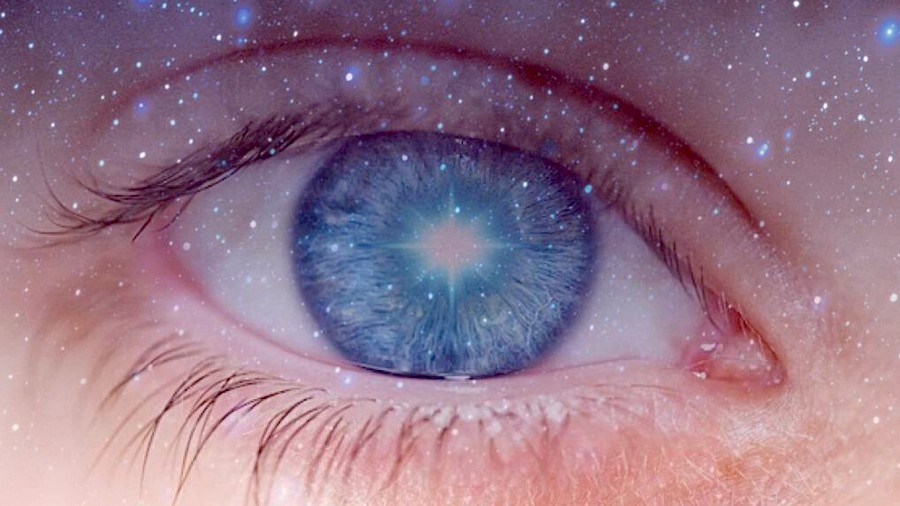“Sāriputta, using my own mind I might know the mind of a particular person: ‘This person is practicing and behaving in such a way, they have taken on such a path, that when this person is separated from the body after death, this person will appear in a good destination, in a heavenly world.’ Then on a later occasion, using divine vision which is pure and surpasses human vision, I see that when that person was separated from the body after death, they appeared in the world of devas, experiencing entirely pleasant feelings.
Sāriputta, it is just as if there was a palace with a peaked roof, plastered walls, impervious to wind, with lockable doors and shutters on the windows. In it there is a couch covered in cowhide, wool, embroidered blankets, and deer-hide blankets, with a canopy overhead and red pillows on both sides. Then a person comes who is scorched by heat, overwhelmed by heat, exhausted, dehydrated, and thirsty, going along a one-way road that leads to that palace. A person with eyes who saw that would say, ‘Based on how that person is practicing and behaving, based on the path that person has taken, that person will come to this particular palace.’ Then on a later occasion, they might see that person in that peaked-roof palace, sitting or reclining on the couch, experiencing entirely pleasant feelings.
In exactly the same way, Sāriputta, using my own mind I might know the mind of a particular person: ‘This person is practicing and behaving in such a way, they have taken on such a path, that when this person is separated from the body after death, this person will appear in a good destination, in a heavenly world.’ Then on a later occasion, using divine vision which is pure and surpasses human vision, I see that when that person was separated from the body after death, they appeared in a good destination, in a heavenly world, experiencing entirely pleasant feelings.
Read the entire translation of Majjhima Nikāya 12 Mahāsīhanādasutta: 12. The Greater Discourse on the Lion‘s Roar by Suddhāso Bhikkhu on SuttaCentral.net. Or read a different translation on SuttaCentral.net or DhammaTalks.org. Or listen on PaliAudio.com or SC-Voice.net. Or explore the Pali on DigitalPaliReader.online.
Or read a translation in Deutsch, Italiano, Русский, Srpski, বাংলা, Čeština, Español, Français, हिन्दी, Bahasa Indonesia, 日本語, ಕನ್ನಡ, မြန်မာဘာသာ, Norsk, Português, සිංහල, Slovenščina, ไทย, Tiếng Việt, or 汉语. Learn how to find your language.


